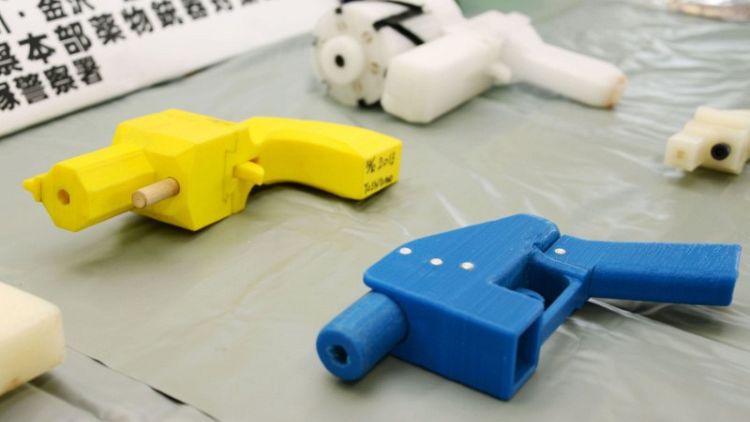By Tina Bellon
(Reuters) - A Texas-based group that was barred by a U.S. federal judge from issuing blueprints for 3-D printed plastic guns on the internet said on Tuesday it has made the firearm designs available for sale.
Cody Wilson, founder of Defense Distributed, said at a news conference in Austin, Texas on Tuesday that he would sell the files and ship them to buyers on a flash drive.
"Today I want to clarify, anyone who wants these files will get them," Wilson said. "I'll sell them. I'll ship them."
The files could previously be downloaded for free, but U.S. District Judge Robert Lasnik in Seattle, Washington, on Monday issued a nationwide injunction that blocked the online distribution of 3-D printed gun files.
Josh Blackman, a lawyer for Wilson, said in a statement on Tuesday that the court expressly allowed Wilson to mail files.
Lasnik did not immediately respond to a request for comment.
Monday's decision blocked a settlement between the Trump administration and Defense Distributed, which argued that access to the online blueprints is guaranteed under the U.S. Constitution's First and Second Amendments, which protect free speech and the right to bear arms, respectively.
"Wilson is trying to push the boundaries over what the U.S. Constitution protects and the court will have to clarify whether the injunction goes far enough to cover flash drives," said Timothy Lytton, a law professor at Georgia State University who has written a book on gun litigation.
On Tuesday, files available on Defense Distributed's website included blueprints for components that could be used to make a version of the AR-15 semi-automatic assault rifle, a weapon used in several U.S. mass shootings. They were available for purchase at a suggested price of $10 each.
A group of 19 U.S. states and the District of Columbia sued the U.S. government in July, arguing that publishing the blueprints would allow criminals easy access to weapons. They also said the Trump administration had failed to explain why it settled the case.
The U.S. State Department, which had previously banned the blueprints as a national security risk and a violation of arms trafficking regulations, did not respond to repeated requests for comment.
Gun control proponents are concerned the weapons made from 3-D printers will be untraceable, undetectable "ghost" firearms that pose a threat to global security. Some gun rights groups say the technology is expensive, the guns are unreliable and the threat is overblown. They also say undetectable guns wholly made of plastic are illegal in the United States.
(Reporting by Tina Bellon; Editing by Bill Berkrot)
